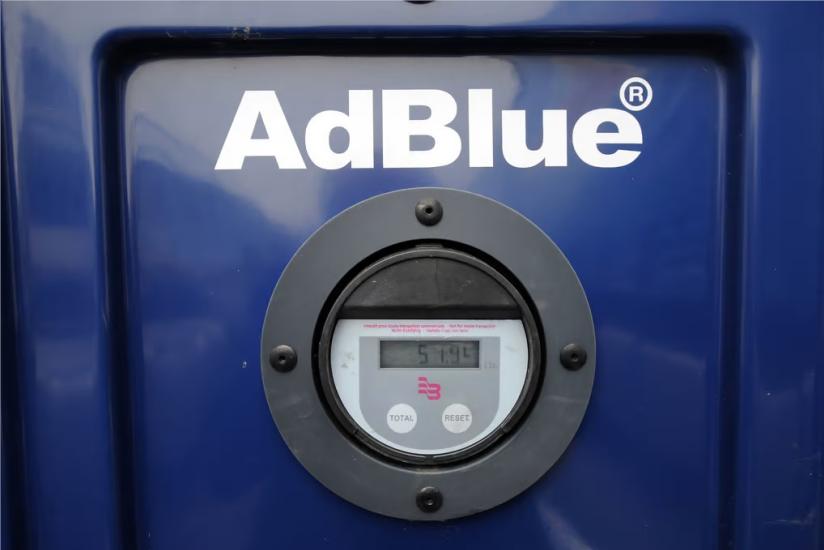 +86 20 26211661
+86 20 26211661
 +86 20 26211661
+86 20 26211661
DEF with Additive can promote the decomposition of urea into ammonia, and avoid or reduce urea crystal formation and agglomeration. The additive also disperses, dissolve and eliminate the existing crystalized substances in the tank
Read MoreConcentrated car wash wax water can effectively remove stubborn stains on the car body, even without wiping.
Read MoreIt has two basic functions: firstly, and most obviously, to aid in the cleaning of your screen by lifting dirt away from it as the wipers sweep. But the second of the low temperature screen wash is to keep your washer fluid from freezing in the depths of winter.
Read MoreConcentrated Car wash wax kit is a high quality, waterless washing and waxing product in one to clean and protect your vehicle, with or without water, anytime, anywhere, no restrictions on the internal and external surfaces can be left anti-static non-stick anti-UV coating
Read MoreAntifreeze (Engine coolant), is a liquid substance used in the cooling systems of vehicles to prevent the engine from freezing in cold temperatures and overheating in hot temperatures.
Read MoreEverBlue antifreeze coolant is a specially formulated ready to use engine coolant, for both petrol and diesel engines, it is mixture of mono-ethylene glycol and selected chemical agents to provide outstanding all round protection.
Read MoreLeather protectant spray work by creating a protective barrier that helps to prevent stains, spills, and damage from everyday wear and tear.
Read More

Natural gas shortages are boosting the prices of the crucial AdBlue additive needed by many diesel-powered trucks.
Russia's natural gas squeeze is spiking the price of a crucial additive used by millions of trucks across the EU and even raising fears of a potential shortage, the logistics industry is warning.
Most diesel trucks on European roads meet EU emission standards thanks to AdBlue, an additive that strips harmful nitrogen-oxide emissions from exhaust. Its use isn't optional: Vehicles are programmed to come to a halt after a few kilometers without it.
But the steep fall in Russian gas shipments means that producing AdBlue — a combination of carbon dioxide and ammonia made from natural gas — has become dramatically more expensive. Prices in some cases have shot up by as much as seven times since last year, said Toralf Weiße, chairman of German logistics group Netzwerk Logistik Mitteldeutschland.
Although there's no widespread shortage of the additive, those price hikes are making industry — which already faced AdBlue supply hiccups last winter — increasingly nervous.
International road transport organization IRU says the EU can't afford to assume there won't be any shortages — especially now that Europe's gas supply is under pressure.
“Without AdBlue, new-generation trucks, which represent the majority in long-haul transport, will [come to a stop]," Raluca Marian, EU policy director at IRU, said in a statement. She estimates that about 4 million of the EU's 6.2 million trucks would be affected.
She wants Brussels to recognize AdBlue as an “essential product without which logistics chains would stop" and consider building up AdBlue reserves and draw up a contingency plan.
“A shortage in the winter must be prevented by all means," she said.
AdBlue producer SKW Piesteritz — one of Germany's largest — idled its production stating high natural gas prices. However, the company has since rebooted its plant.
Germany's economic ministry said this month that it hadn't registered an AdBlue shortfall, and other producers have said they'll continue to supply the product — even as they're hit by the gas prices hikes.
"AdBlue is essentially made from natural gas. The skyrocketing prices therefore have a direct and devastating impact on the cost of AdBlue," said a spokesperson for Norwegian producer Yara.
This week, German motorist association ADAC agreed there is no nation-wide supply crunch, but added that it had registered a significant jump in prices.
A shortage could have a devastating impact in Germany, where as much as 90 percent of truck traffic relies on the additive, German road haulage association BGL warned last year.
Weiße wrote an open letter to Germany's Economy Minister Robert Habeck and Transport Minister Volker Wissing, saying that the price for 1 liter of AdBlue had risen from 17 cents in August 2021 to 65 cents a year later; the additive now costs €1.20 per liter.
A large truck needs up to 50 liters of AdBlue every two weeks — making it a significant cost for larger firms. Weiße gave the example of one specific company with 380 trucks, which would see an increase in annual costs of about €500,000.
Other industry lobbies have also raised concerns: Dutch industry group TLN said it has asked The Hague and Brussels to step in, warning that the transport sector would come to a standstill in the event of an AdBlue shortage.
Zdzisław Szczerbaciuk, the head of the Polish Chamber of Motor Transport and Logistics, told the Polish press: "I have not yet received any signals from chamber members that there is a shortage of this product, but we are watching the rising prices of this liquid with disbelief."
 online service
online service +86 20 26211661
+86 20 26211661 sammi@everblue.com.cn
sammi@everblue.com.cn Sammi Sun
Sammi Sun +86 137 1902 0590
+86 137 1902 0590